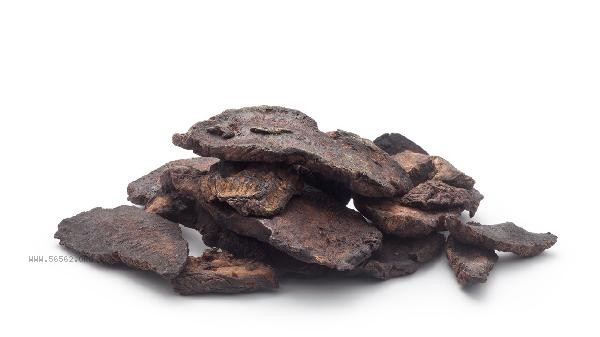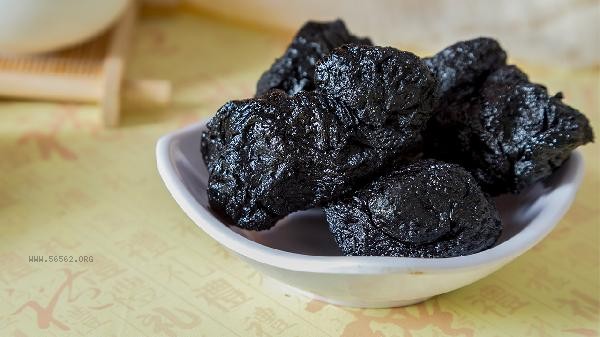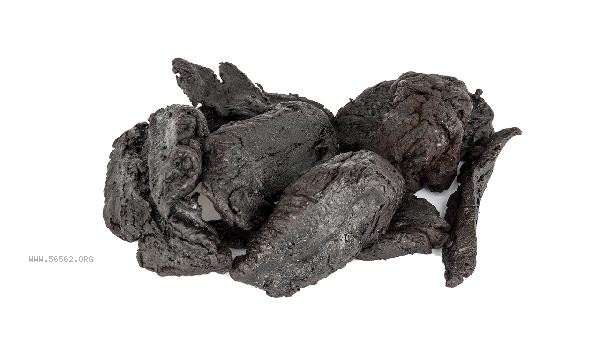Rehmannia glutinosa is not suitable for long-term use by everyone. It should be used with caution by those with yin deficiency and excessive fire, weak spleen and stomach, excessive phlegm and dampness, colds and fever, and pregnant women. Shu Di Huang is a commonly used traditional Chinese medicine herb for nourishing blood and yin. However, long-term overdose may lead to adverse reactions such as bloating and decreased appetite.

1. Individuals with Yin deficiency and excessive fire
Individuals with Yin deficiency and excessive fire constitution may exhibit symptoms such as hot flashes, night sweats, dry mouth and throat, and red tongue with little coating. Rehmannia glutinosa has a warm and greasy nature, which may exacerbate internal heat deficiency, leading to oral ulcers, gum swelling and pain, and other internal heat reactions. This group of people can choose medicinal herbs such as Xuanshen and Ophiopogon japonicus to nourish yin and reduce fire, and if necessary, combine them with Zhibai Dihuang Pills for conditioning.
2. Patients with weak spleen and stomach
Those with poor digestive function who take Rehmannia glutinosa are prone to discomfort such as abdominal distension and loose stools. The sticky and obstructive properties of Rehmannia glutinosa can affect the function of the spleen and stomach, and long-term use may damage the yang qi of the spleen and stomach. It is recommended to use medicinal herbs such as sand kernels and tangerine peel to regulate qi and invigorate the spleen, or switch to the Si Jun Zi Tang isothermal and nourishing formula.
3. It is not suitable for people with phlegm dampness constitution who have thick and greasy tongue coating, heavy limb fatigue, excessive phlegm and chest tightness. The characteristic of Rehmannia glutinosa in nourishing greasiness and aiding dampness can aggravate phlegm dampness stagnation, which may induce symptoms such as cough, excessive phlegm, dizziness, and drowsiness. This group of people should first use phlegm resolving and dampness dispelling formulas such as Er Chen Tang to regulate their constitution.
4. People with colds and fever

Taking Rehmannia glutinosa during the period of external pathogenic factors may close the door and prevent the spread of pathogenic factors. Its nourishing properties can cause persistent fever symptoms, especially for those with wind cold colds who may experience worsening nasal congestion, headaches, and other symptoms. It is recommended to wait until the cold has recovered before taking tonics. In the acute phase, medications such as Yinqiao Powder can be used to relieve symptoms.
5. Pregnant women
Pregnant women have special constitutions, and the blood activating effect of Rehmannia glutinosa may affect fetal stability. Its nourishing properties can also lead to gastrointestinal discomfort during pregnancy, long-term use or interference with normal pregnancy metabolism. During pregnancy, it is recommended to consult a traditional Chinese medicine practitioner and choose medicinal herbs such as mulberry parasitism and Eucommia ulmoides for safe pregnancy.
Those who take Rehmannia glutinosa for one year should regularly evaluate their physical changes, and stop immediately if adverse reactions such as decreased appetite and thickened tongue coating occur. It is recommended to take it every 2-3 months with an interval of 1 week, combined with moderate exercise to promote metabolism. In daily life, it can be paired with spleen strengthening ingredients such as yam and Poria cocos to reduce the effect of greasiness. During use, avoid eating raw, cold, and greasy foods, and maintain a regular daily routine to help absorb medicinal effects. If there is obvious discomfort after long-term use, seek medical attention promptly to adjust the medication plan.









Comments (0)
Leave a Comment
No comments yet
Be the first to share your thoughts!